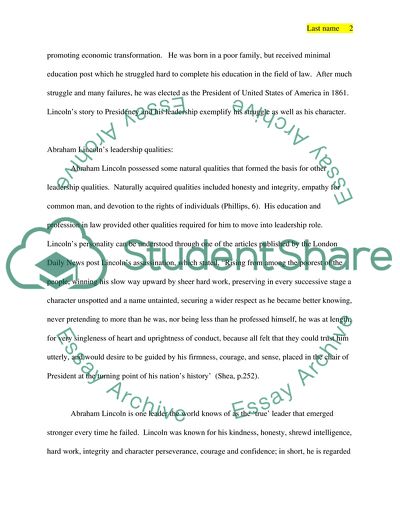Cite this document
(Abraham Lincoln's Personality Term Paper Example | Topics and Well Written Essays - 2500 words, n.d.)
Abraham Lincoln's Personality Term Paper Example | Topics and Well Written Essays - 2500 words. Retrieved from https://studentshare.org/history/1749209-abraham-lincoln
Abraham Lincoln's Personality Term Paper Example | Topics and Well Written Essays - 2500 words. Retrieved from https://studentshare.org/history/1749209-abraham-lincoln
(Abraham Lincoln'S Personality Term Paper Example | Topics and Well Written Essays - 2500 Words)
Abraham Lincoln'S Personality Term Paper Example | Topics and Well Written Essays - 2500 Words. https://studentshare.org/history/1749209-abraham-lincoln.
Abraham Lincoln'S Personality Term Paper Example | Topics and Well Written Essays - 2500 Words. https://studentshare.org/history/1749209-abraham-lincoln.
“Abraham Lincoln'S Personality Term Paper Example | Topics and Well Written Essays - 2500 Words”, n.d. https://studentshare.org/history/1749209-abraham-lincoln.


